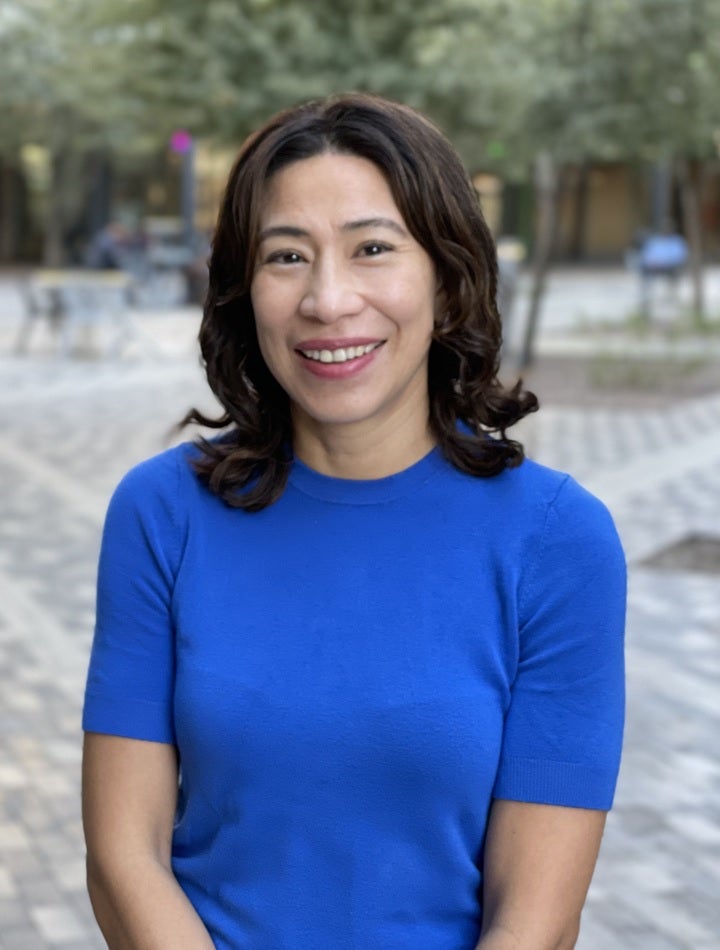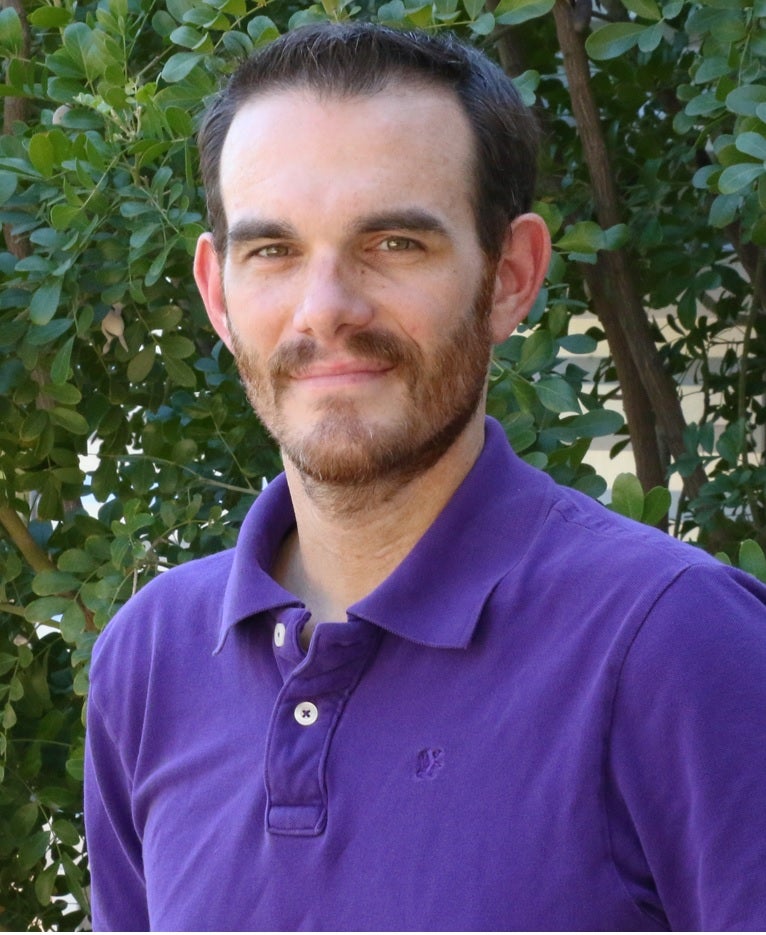Arizona State University professors Lorena Cuya Gavilano and Aaron Hess, both faculty members in the College of Integrative Sciences and Arts at ASU’s Downtown Phoenix campus, have received Fulbright U.S. Scholar Program awards for the 2022–23 academic year from the U.S. Department of State and the Fulbright Foreign Scholarship Board.
Cuya Gavilano, who is engaged in building partnerships in Peru, and Hess, who is collaborating with scholars in Norway, are among the more than 800 U.S. citizens who are working abroad this academic year through the Fulbright U.S. Scholar Program.
Fulbrighters engage in research, teaching and expand their professional networks, often continuing collaborations started abroad and laying the groundwork for forging future partnerships between institutions.
Upon returning to their home countries, institutions, labs and classrooms, they share their stories and often become active supporters of international exchange, inviting world scholars to their home institutions and encouraging colleagues and students to go abroad.
Cuya Gavilano, associate professor of Spanish language, literature and culture, has begun work on a project titled “Andean Border Thinking and Chinese Migration to Peru,” at Pontifical Catholic University of Peru, in Lima.
“This project is about migrant populations within Peru, the Andean region and beyond. It advances what is called ‘border thinking,’ which is a reflection on displacements and the knowledge produced by the displaced,” Cuya Gavilano explained.
Her project has interconnected teaching and research components that consider the Andean region as a border of complex cultural exchanges.
Its research component brings special attention to the Chinese diaspora in Peru.
Lorena Cuya Gavilano
“The Chinese diaspora in the Andes is still largely understudied,” she said. “Overseas Chinese studies have concentrated mainly in the United States and Canada. Other regions of the Americas, that is Latin America and parts of the Caribbean, have been ignored until very recently. My work will contribute to efforts by some scholars to map the Chinese history in Latin America. I’ll be focusing on transcontinental migrations from China to Peru and plan to expand the project to Bolivia and Ecuador in the future.”
The teaching component of her project focuses on the Andean region and highlights practices of inclusion and exclusion defining borders and migration. She’ll be involving students in courses that incorporate community engagement and promote social connections, as well as social awareness and change in theory and practice.
She is already looking forward to the collaborations that will continue after her Fulbright year has ended.
“When I return, I plan to sustain ASU’s institutional collaboration with Sync class sessions involving Peruvian students and professors,” Cuya Gavilano said. “These sessions would highlight the North and South American perspectives on border thinking.”
Her expectation is that these classes will become incubators for the creation of an Andean Border Thinking Group, "connecting students and scholars in Andean countries and beyond who are interested in moving forward the research on mobility and interculturality, in workshops and symposia in partnership with a number of international institutions,” she said.
Hess, associate professor of communication, is doing a Fulbright project about the rhetorical concept of ethos, or credibility of character.
“It's an ancient concept that's been troubled in recent years,” he said.
“Finding trustworthy sources in public messaging has become increasingly difficult,” said Hess, whose scholarship trajectory has grown out of a foundation in participatory rhetorical methods and digital rhetorical theory. “Look no further than medical or governmental officials such as those in the CDC who have struggled with providing credible messages during the pandemic.
Aaron Hess
“To explore ethos during my project, I've joined the International Network for the Study of Credibility, Ethos and Trust, which originates with scholars at the University of Bergen, Norway. We’ll be analyzing how ethos can be understood as a cultural phenomenon,” he said. “Could it be the case that ethos is culturally formed? How might Norwegian culture differ from U.S. culture when it comes to credibility and trust? Through a theoretical and empirical investigation within the local population in Norway, I'll be looking for answers to these questions."
“In my earliest research, I'm already finding that there are remarkably different attitudes in Norway regarding labor, sustainability, and the pandemic,” he added. “I'm excited to be immersed into the culture here to learn more about these things, and my family has come with me, so I'm also excited for them to learn the language, culture and customs in Norway.”
ASU Executive Vice President and University Provost Nancy Gonzales said ASU — recognized as one of the top producers of faculty Fulbright U.S. Scholars — appreciates the long-term impact that Fulbright-sponsored programs have in higher education.
“As we prepare our ASU students to achieve their goals and contribute their talents to an ever-changing, globally connected world, we benefit from the expansive connections nurtured in Fulbright programs,” Gonzales said. “As Fulbright Scholar alumni, Lorena and Aaron will join a network of thousands of esteemed scholars, many of whom are leaders in their fields.”
Fulbright alumni include 61 Nobel Prize laureates, 89 Pulitzer Prize recipients and 40 who have served as a head of state or government.
Both Hess and Cuya Gavilano said they took advantage of the extensive resources ASU offers to help faculty at each stage of the Fulbright applications process — from selecting the right award to apply for, to navigating host institutions, to thorough reviews of all application materials.
Karen Engler-Weber, who serves as ASU’s liaison to the Fulbright Scholars and Specialists program, explains why the link between ASU and Fulbright has been exceptionally strong.
“The goals of Fulbright focus on innovation, impact, and inclusion – ideals that run parallel to ASU’s charter," she saidd. "ASU faculty are particularly competitive for Fulbright awards because the type of work that they do to support the charter is what fulfills Fulbright’s mission.
“Fulbright is an exciting, life-changing opportunity. If you have ever dreamed of teaching or conducting research abroad, let ASU Fulbright help you to achieve those goals.”
The next competition cycle for the Fulbright program will launch in February 2023 and information sessions about how to apply will be hosted at ASU throughout the spring.
More Arts, humanities and education

Different ways of thinking, different ways of thriving: How ASU is supporting students with autism
According to the CDC, over 5.4 million adults in the U.S. are living with autism spectrum disorder, a condition that affects…

Forever sewn in history
The historical significance of Black influence on fashion spans centuries. From the prints and styles of Africa to various…

The Poitier Film School hosts Emmy-winning ‘Shōgun’ costume designer Carlos Rosario in LA
The Emmy and Golden Globe award-winning blockbuster FX series “Shōgun” doesn’t just have audiences in its thrall, but the…


